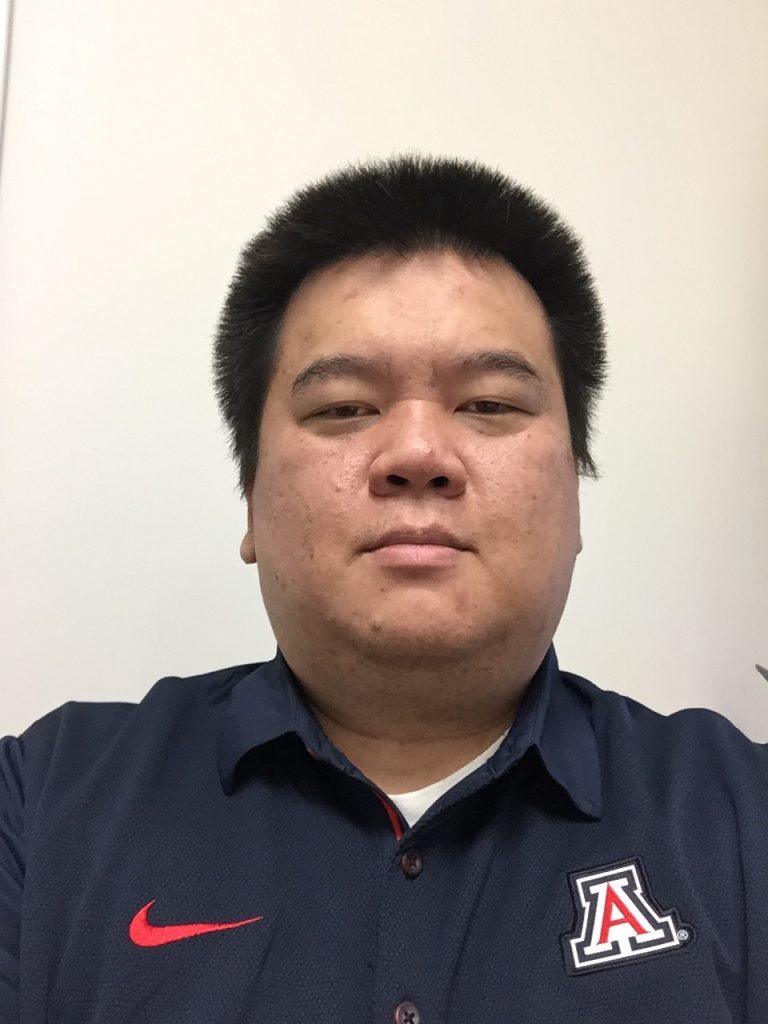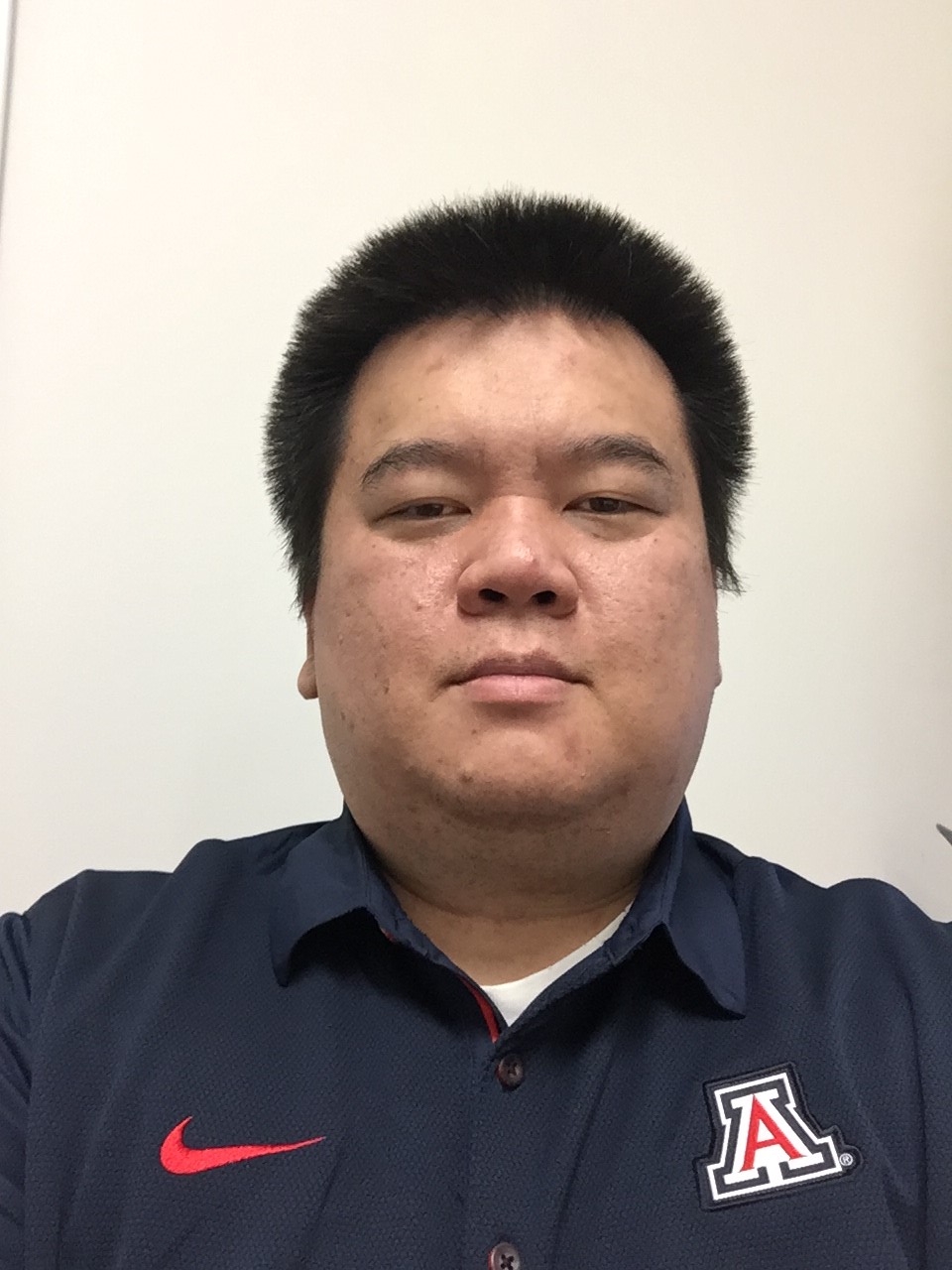Paul Kang is a statistician for the University of Arizona College of Public Health and the College of Medicine – Phoenix and belongs to the UACOMP Biostatistics study design and statistical analysis core service within the Research and Compliance Office. Kang has an undergraduate degree in molecular biology from the University of Minnesota and a master’s degree in public health from the University of Arizona College of Public Health in Tucson. Kang joined the UA College of Medicine—Phoenix as a biostatistician in 2015.

Photo courtesy of Paul Kang
The Differential: Tell us a little bit about yourself. What does your job at UACOMP entail?
Kang: Hello everyone. I’m originally from St. Cloud, Minnesota (about an hour north of Minneapolis), but I’ve resided in Arizona since 2006, which probably makes me an Arizonan.
My job is to provide study design and statistical analysis consulting to any UACOMP faculty member, resident, fellow, or student. I spend about 60 percent of my time with the students and their scholarly projects and 40 percent with faculty/residents across the valley.
In my free time (what little free time I have), I’m an avid golfer whose mission is to play every single golf course in Phoenix and its surrounding areas. I also enjoy going to sporting events and trying out all different types of cuisines here in Phoenix (I’m a huge foodie: figuratively and literally).
Why biostatistics?
I received my undergraduate degree in molecular biology with the intention of becoming a geneticist. But after working in a genetics lab in UA Tucson for a number of years, I figured out pretty quickly that bench work wasn’t for me. Subsequently, I started to look into other science-related subjects where I could start my career. I discovered the world of epidemiology and biostatistics and was hooked instantly. It gave me a whole different perspective on research that I had not seen before.
What is your favorite part about your job?
One of my favorite parts of the job is the interaction with the students and faculty members. All of you bring great ideas and projects that could change how medical professionals practice medicine thus helping patients increase the quality of their lives. In addition, every single project that I come across brings new information that I may not have known prior to the meeting. This job definitely allows me to become a continuous learner.

Paul Kang, a statistician for the University of Arizona College of Public Health and the College of Medicine – Phoenix. Photo courtesy of Paul Kang.
What projects are you currently working on?
Take your pick! I consult on approximately 60 projects per graduating class with an additional 30 or so faculty/resident projects per year. It’s amazing to see the diverse types of projects that I come across. These projects include, clinical research, basic medical science research, global health, and public health research—all of which attempt to find solutions to ascertain better methods of helping patients.
How do you see your role intersect with medicine, medical students, and patient care?
I believe epidemiology and biostatistics have intersected with medicine more than people think. It’s the part of research that comes in between the creation of the research question to applying the evidence-based treatment modalities to help patients.
What study design are we going to use? What is the inclusion/exclusion criteria for your study? How many people do you need to make your study valid? Are there biases that we can’t control for during the design phase that we need to incorporate to our analysis? What’s our analysis plan? All of these questions are epidemiological and biostatistical questions that people like me try to help with during research collaborations.
With respect to medical students, I think my position functions more as an educator. Whether the students want to pursue an academic career or not, I hope that their experience with their research projects allows them to become more confident when they read a journal article and know what they’re reading and to critically think whether its findings are relevant towards the caring for their patients.
Is there anything people don’t think about or know about you or your job?
I’m an extremely boring person who lives a simple life; however, one of my strengths is that I’m constantly thinking of “What’s Next”? What do I need to do now in order for me to be successful five to ten years down the line? Currently, I’m trying to pursue a PhD degree in Epidemiology to further my career. But for now, I’ll continue to enjoy my interactions with all of the medical students, physicians, and scientists with UACOMP and I look forward to any research projects that I have the privilege to collaborate on.
About the Authors:
Dara Farhadi is a member of The University of Arizona College of Medicine – Phoenix, Class of 2022. He graduated from The University of Arizona in 2016 with a degree in Neuroscience and Cognitive Science and then received a master’s degree in Science Journalism from Boston University. He enjoys playing tennis and video games. You can contact him via twitter @Dara_Farhadi
Madalyn Nelson is a part of the 2020 class at The University of Arizona College of Medicine – Phoenix. She is an Arizona native and graduated from Xavier University where she earned her bachelor’s degree in biology. Madalyn has a passion for traveling and global health. To contact Madalyn, please email her at madalyndnelson[at]email.arizona.edu.
Dara Farhadi is a member of The University of Arizona College of Medicine – Phoenix, Class of 2022. He graduated from The University of Arizona in 2016 with a degree in Neuroscience and Cognitive Science and then received a master's degree in Science Journalism from Boston University. He enjoys art and playing tennis. You can contact him via twitter @Dara_Farhadi

